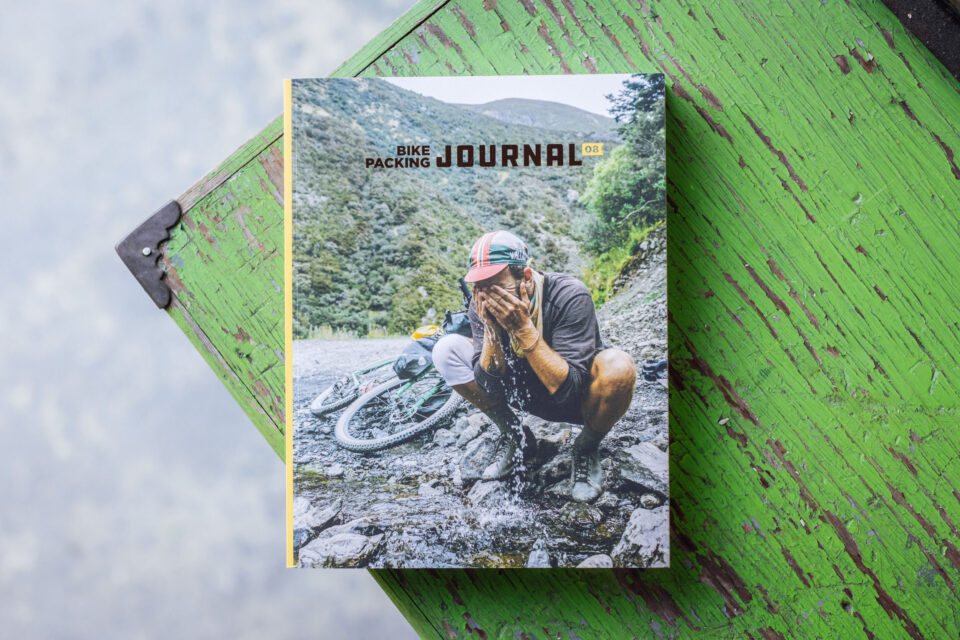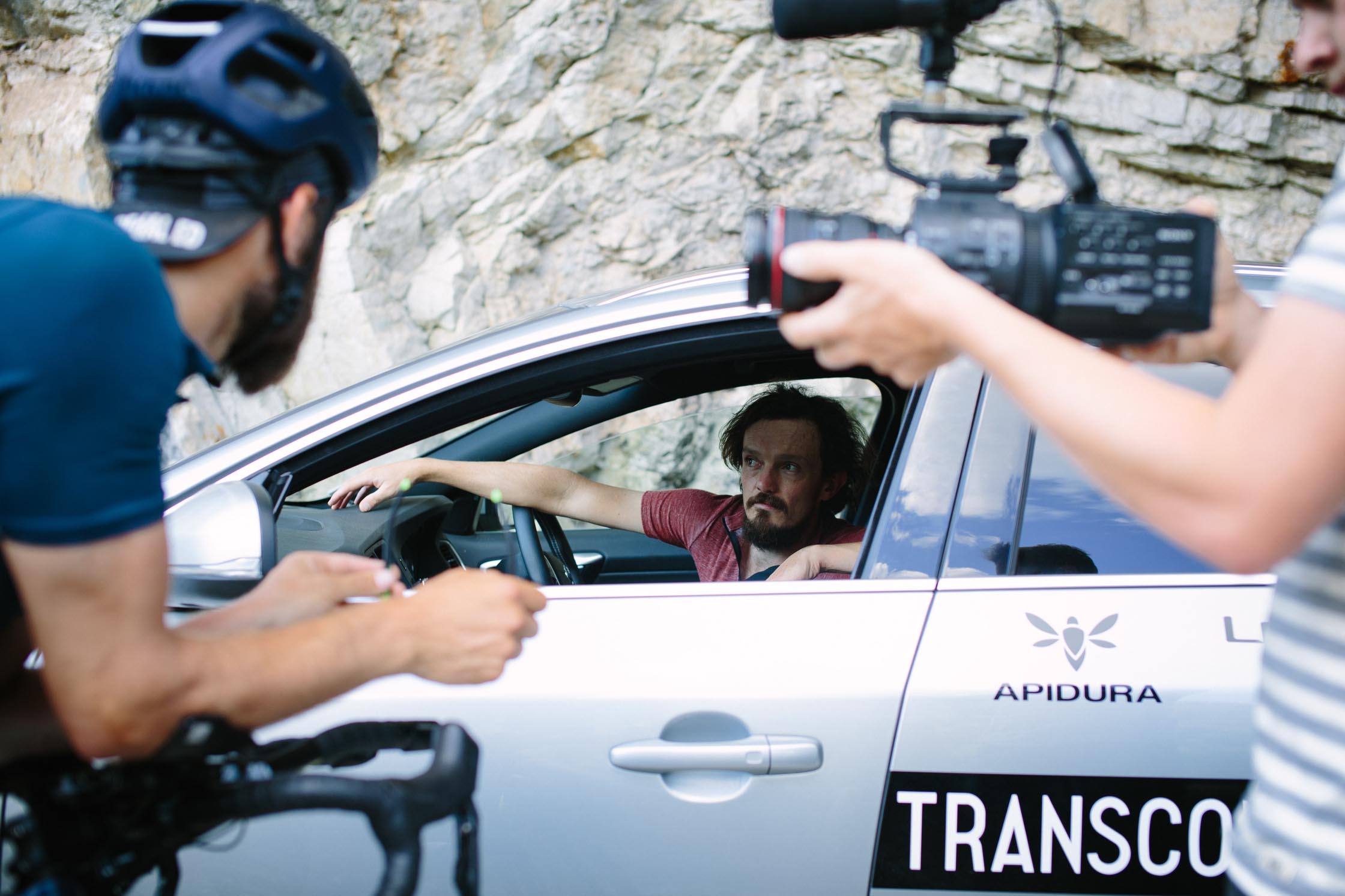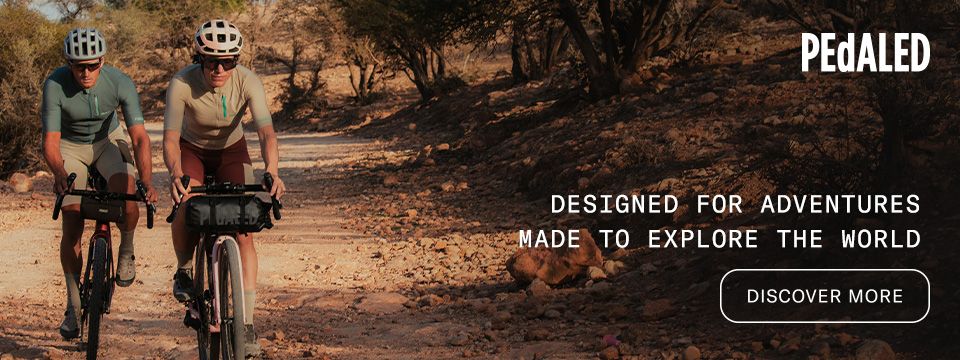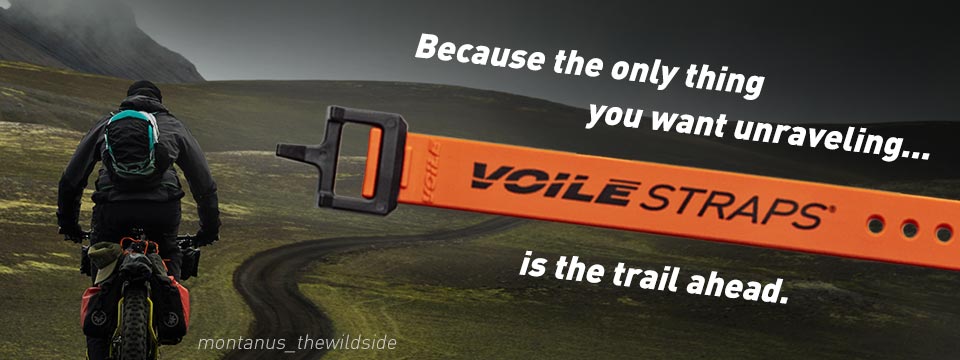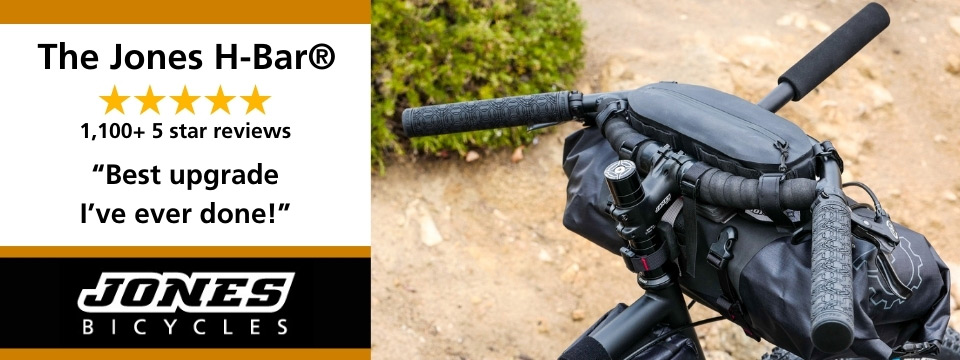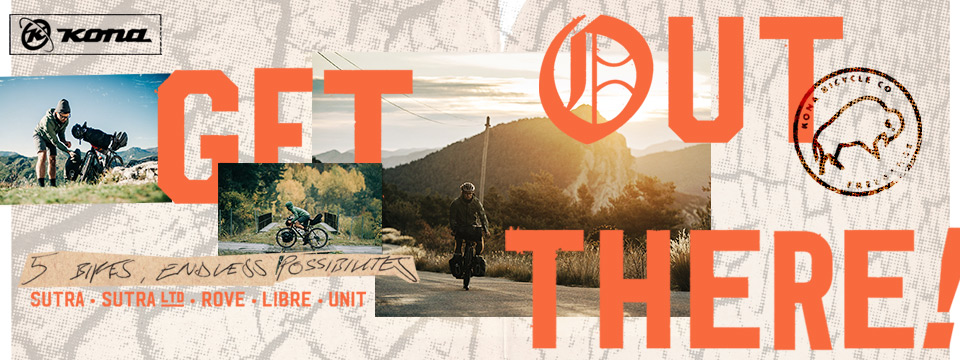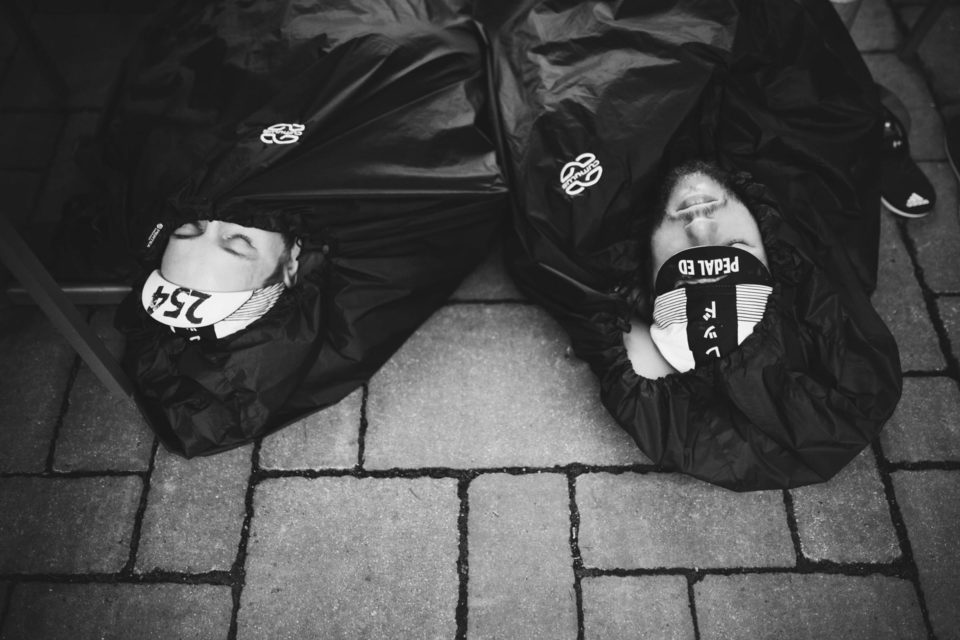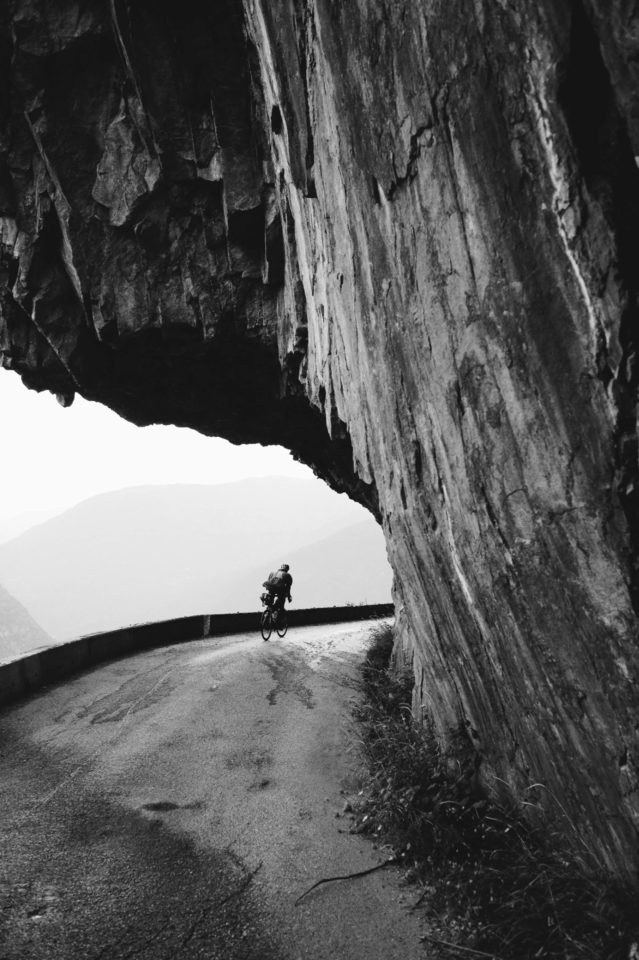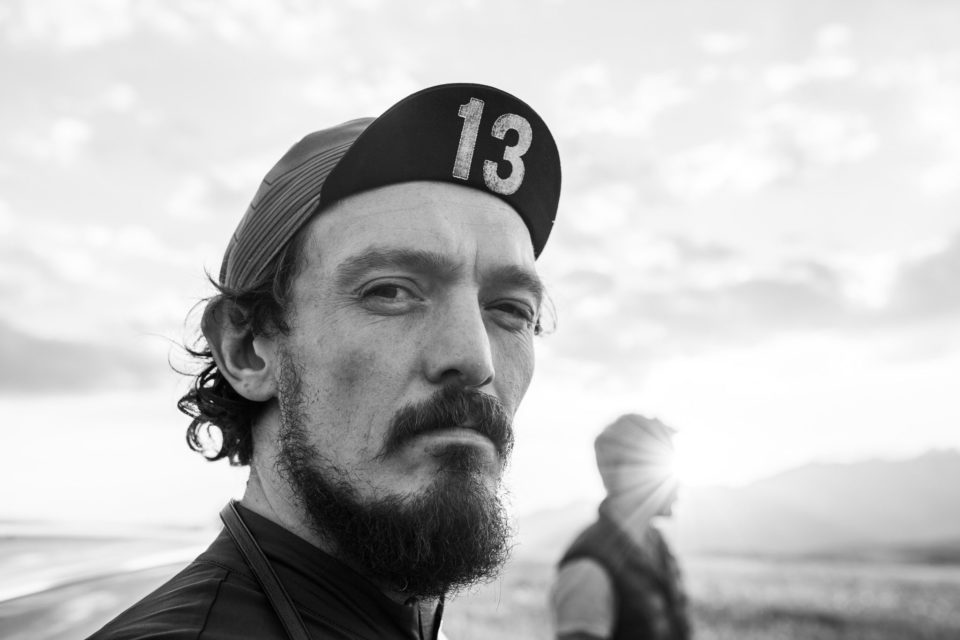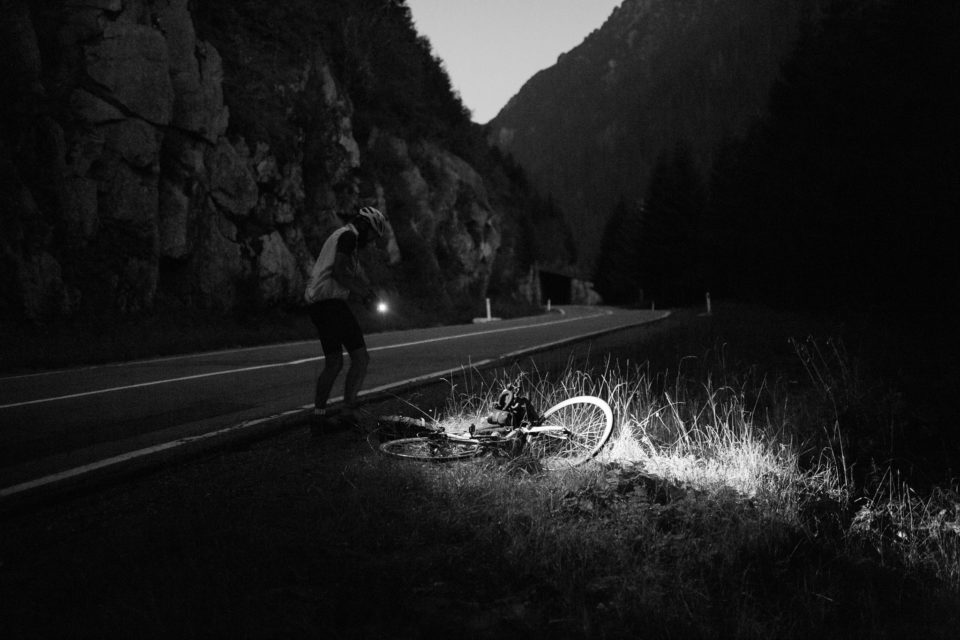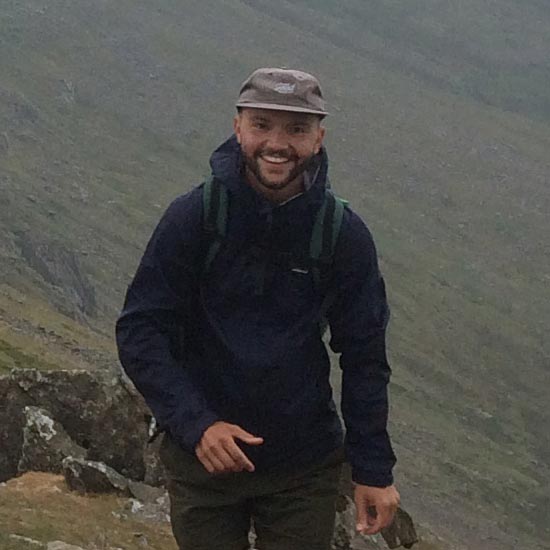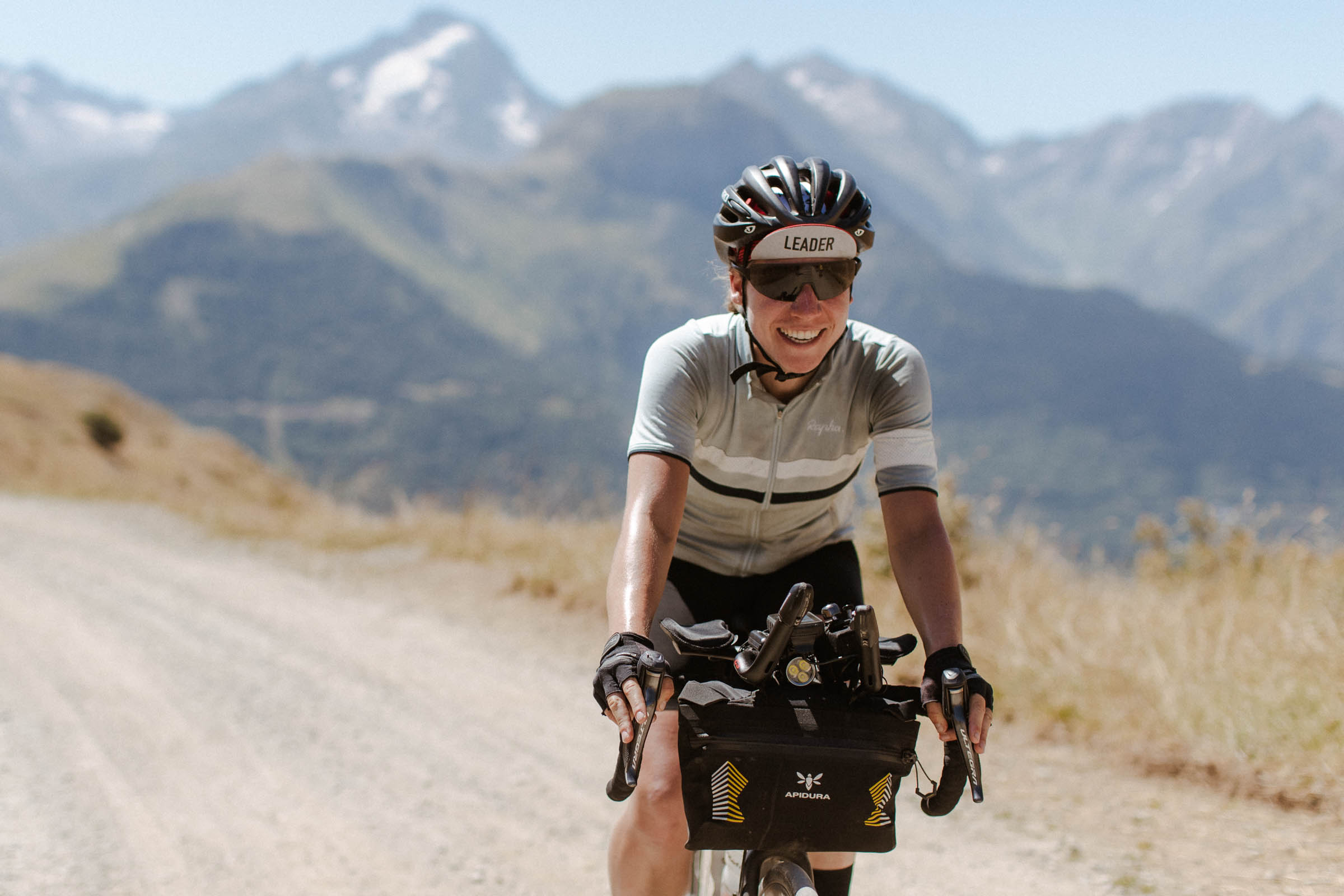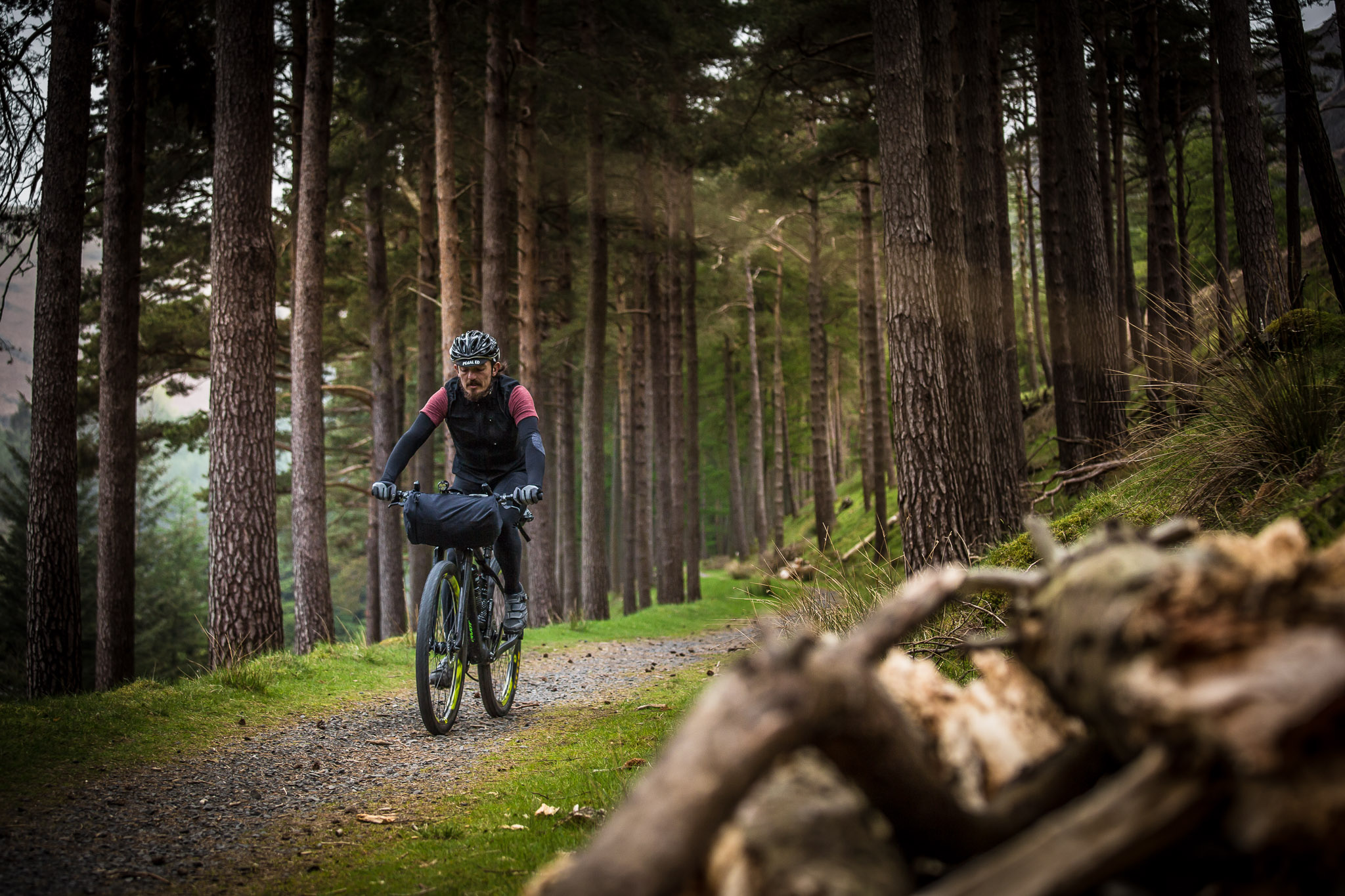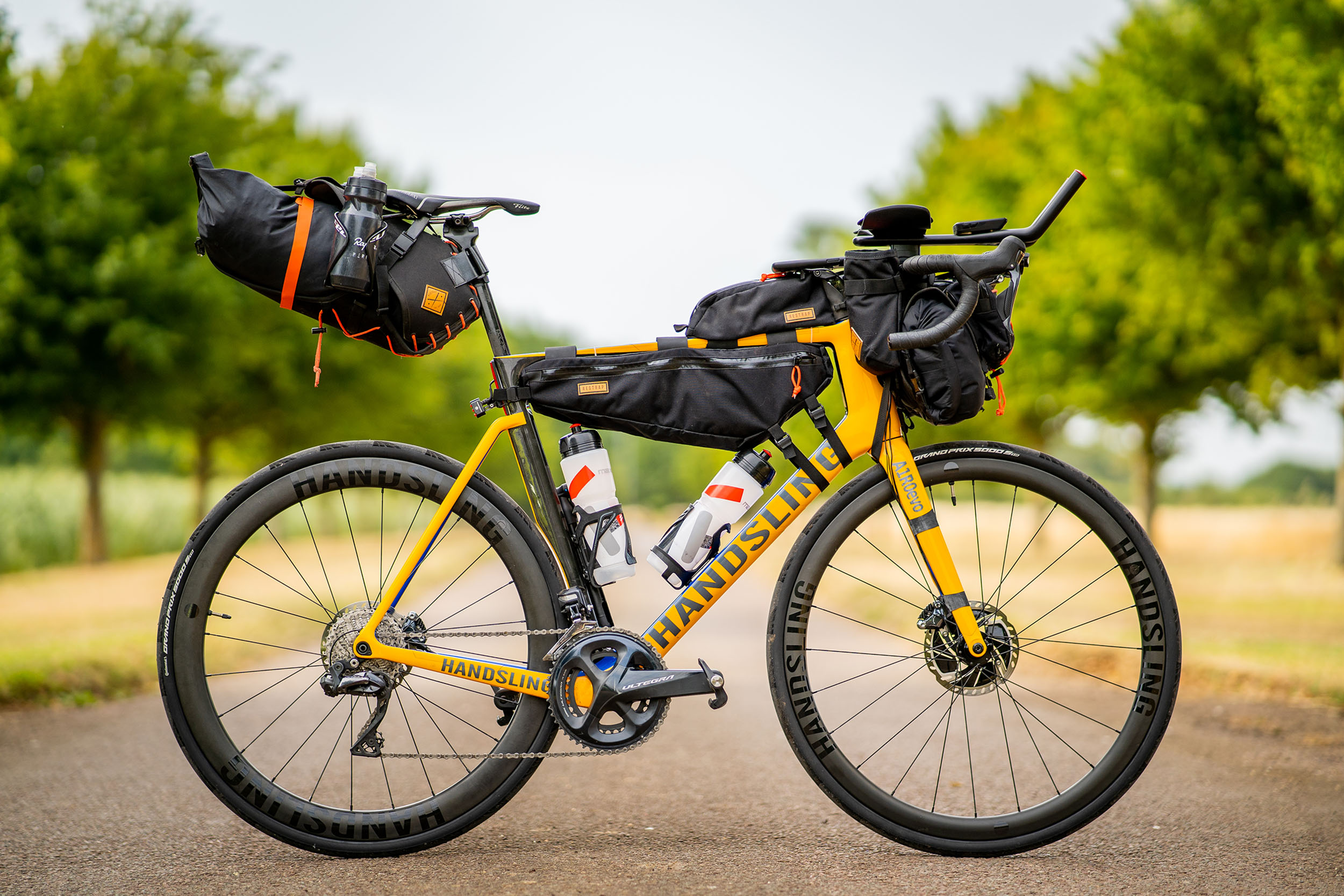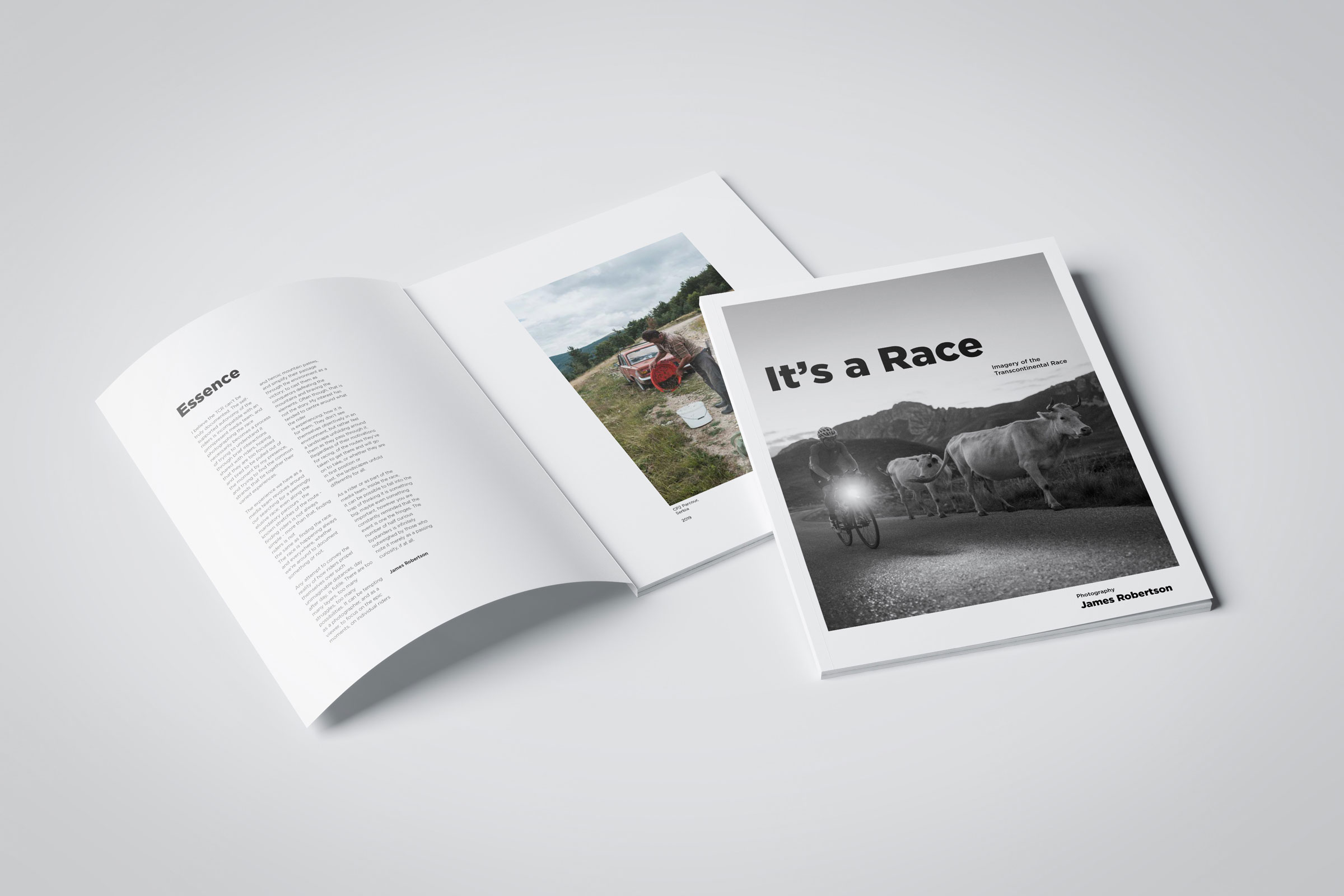Organized Chaos: Running The World’s Toughest Bike Race
Share This
The year before his death, Mike Hall, founder of the Transcontinental Race, spoke to George Tyson about what it’s like to run the world’s toughest bike race. The eighth edition of the Transcontinental begins this weekend, and, although Mike’s no longer at the helm, his legacy lives on…
Words by George Tyson with photos by James Robertson. This was originally published in July 2018, with dates/editions adjusted in 2022
English ultra-distance cyclist Mike Hall is a celebrated figure in the burgeoning scene of bikepacking racing. Round-the-world record holder and founder of the Transcontinental Race, he gave everything to the discipline, and on 31st March 2017, tragically lost his life in a collision with a vehicle while taking part in a race across Australia.
The year before his death, Mike spoke to George Tyson about what it’s like to organise the world’s toughest bike race. From managing risks to maintaining legitimacy in an ever-crowded market, Mike cared deeply about the race and its participants. The eighth edition of the race begins this weekend and, although he’s no longer at the helm, his legacy lives on.
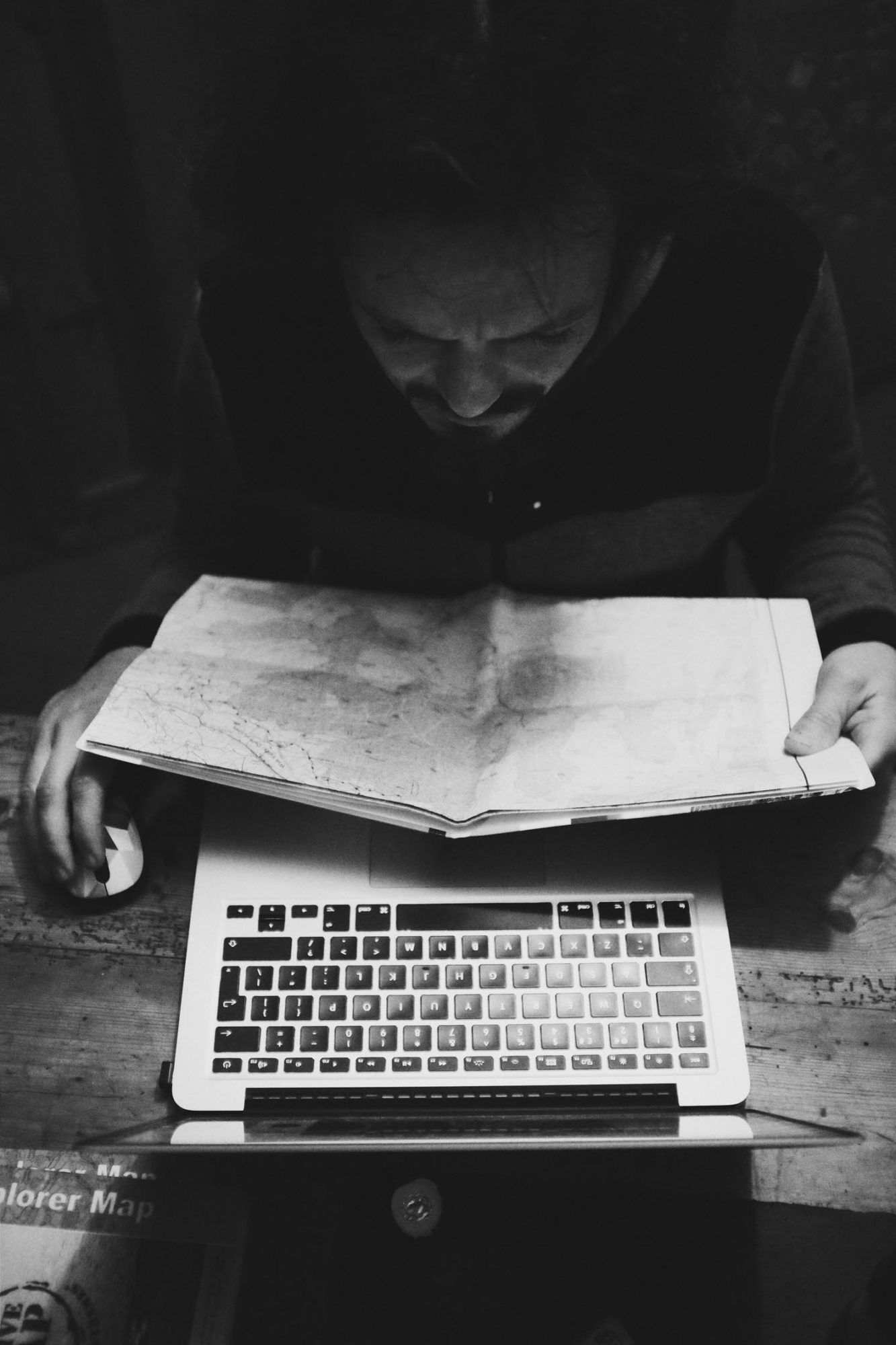
Every year, 200 cyclists line up in Western Europe at the end of July, facing east. Each of them will embark on a self-supported race across the continent, covering more than 4,000km as quickly as possible to reach a point close to the edge of Asia. They’ll eat, sleep, and ride through 11 countries and over Europe’s highest mountain passes against a clock that doesn’t stop. And they’re all there because of Mike Hall – the man behind the Transcontinental.
“From an organisational point of view, it’s quite risky. We’re encouraging people to go out and race and put themselves in potentially sticky situations,” explained Mike on a patchy phone line from his home on the edge of Elan Valley, Wales. “It isn’t a sportive, and no one will take care of you or compensate you when it goes wrong.”
Despite this, the sixth edition [8th in 2022] of the Transcontinental is another sell-out year. It’s not your usual competition; as Mike said, you’re completely alone – third party support is prohibited – and it doesn’t follow a strict route. Instead, riders have to navigate their own way past three checkpoints before arriving at the finish line at least nine days’ riding away.
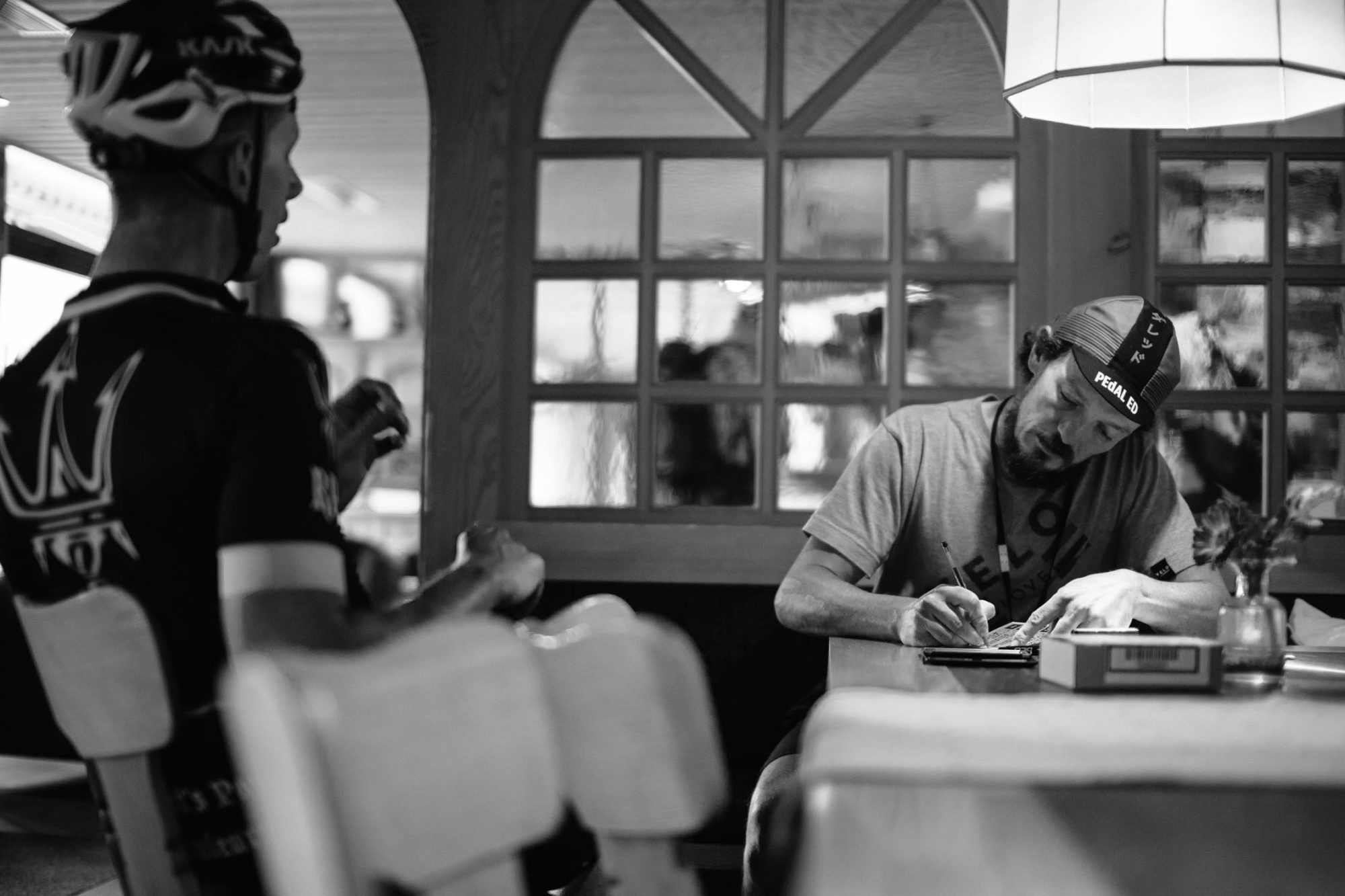
Mike had first-hand experience of what it takes to compete in an event like this. He’s the unofficial round-the-world record holder, cycling more than 30,000km in 107 days. He also won the Tour Divide twice, a 4,400km mountain bike race that traverses the Rocky Mountains, in 2013 and 2016. But he first happened upon race organisation by accident.
After signing up for the round-the-world cycle event in 2012 that would be the scene of his unofficial record, the organiser quit, leaving Mike and 10 other racers to take the reigns themselves, preparing the competition as they went. By the time they’d pulled it off, and Mike had won, they had the confidence to try something else – the Transcontinental. He added, “Most years I’ve spent June by myself in a big race. So now I have this massive distraction from riding in the summer, and it also means I don’t look at the riders and think, ‘I wish I was out there myself.’”
In the relatively short time it’s been around, the Transcontinental has grown into something of a phenomenon in the cycling world. Mike’s reputation as an ultra-distance racer likely plays a large part in its legitimacy – something he seemed all too aware of: “I don’t think the Transcontinental would have been possible, or that as many people would have signed up, if no one knew that the person asking them to do it knows that it’s possible. This year I hadn’t raced for 18 months, and it felt like I’d given up. I felt like I’d lost touch with racing and I was actively missing it. So coming back to the Tour Divide meant there were some big questions for me to answer.
“You never get to the start line and feel like you have it [4,400km] in your legs as you might on the start line of a two-hour race. Winning gave me a massive boost, and I thought: ‘I’ve still got it. I’m still relevant.’ And that helps the race. You can pretty much have people do anything if you’re prepared to do it yourself. It also keeps us safe from imitation.”

Run with the help of volunteers – many of whom are veterans of the race – the event has a very tangible connection to the ultra-distance cycling scene it serves. “The scene has certainly helped us grow,” explained Mike. “There’s a spirit in which people take to the race: it’s an adventure first and a race second. That balance is really important, and I think it’s shared amongst the bikepacking scene. Everyone comes into it knowing what it’s about, so it’s good that it doesn’t get too widely dispersed. We’re growing slowly, which feels right. By the time of TCR03 it was at its limit, then last year we were turning people away.”
The more Mike described the race’s connection to the bikepacking scene, the more his commitment to it seemed to govern the way the race operates. “In the long term, we want to keep the commercial aspect of the race as low as possible,” he said. “With more sponsors comes more financial expectations, so we’ve bound ourselves to what we’d want to see if we were racing it ourselves. The entry fee is low [around £200] because it wouldn’t feel right charging more simply because we can. Trail centres or service stations in key locations might charge £4 for a cup of tea because they have a captive audience, and you feel exploited. But it can be so refreshing and rewarding when people have the ability to take advantage of you and they don’t, because they’re one of you. And that’s a very powerful thing. If you’re authentic, the community will take care of you.
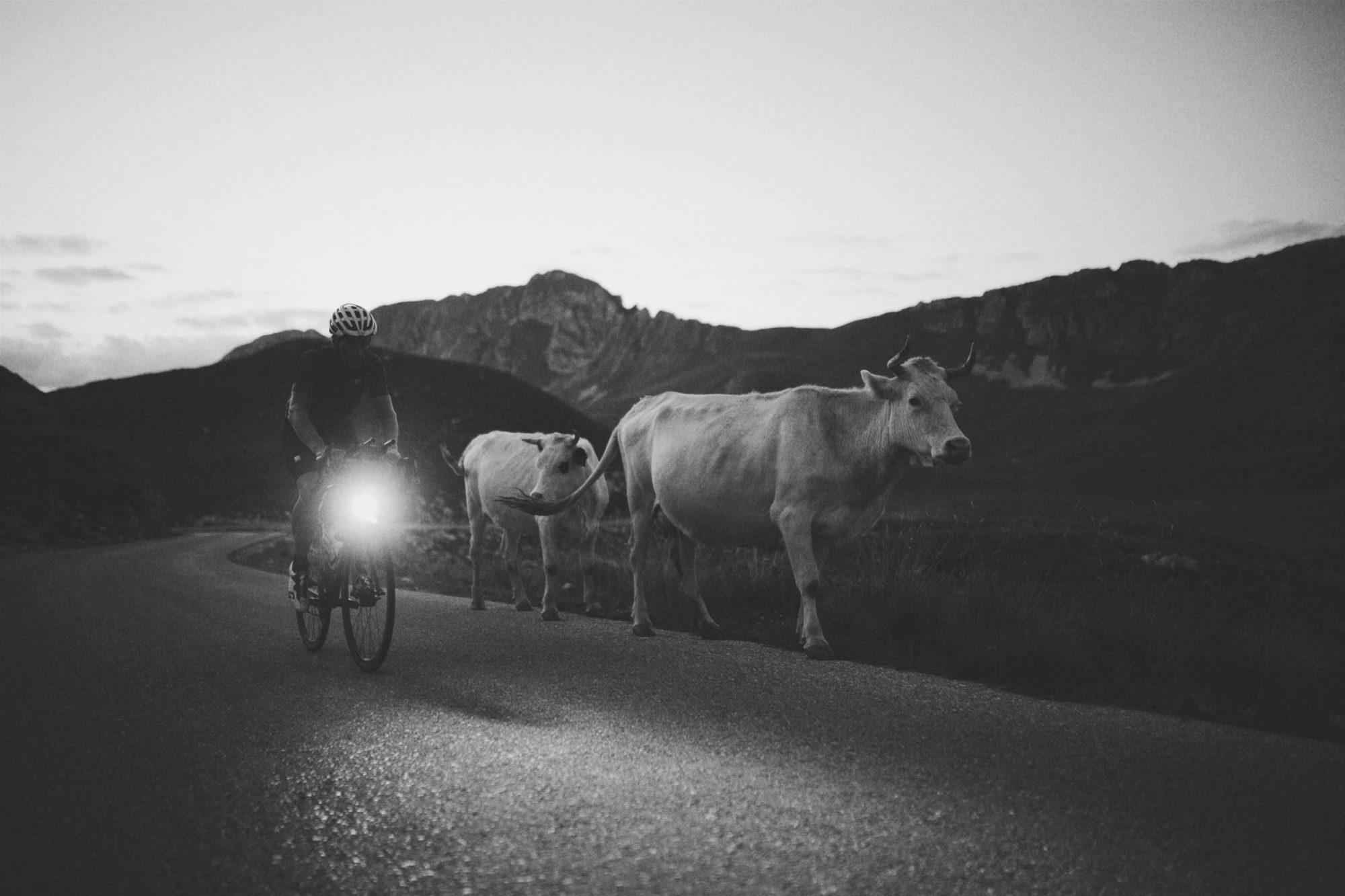
“Fortunately those we’re working with currently want to be involved because they want to contribute to the race. Tori Fahey, founder of Apidura [rackless bike pack providers favoured by many of the participants in the race] first volunteered to register riders as they passed through one of the checkpoints. They now sponsor one of our checkpoints.”
As the race continues to expand, and the ultra-distance race offerings increase worldwide, Mike predicted the next step for the Transcontinental would be in its audience. “We kind of have a unique sporting interaction on our hands, and because social media suits us so well for reporting, following the event can be an activity in itself, and a completely different experience,” he said. “We want the audience to feel the adventure by proxy. By not reporting on everything it keeps that excitement and self-initiated discovery there for people. If we’d gone in and tried to live record the whole thing, it might lose some of its appeal, some of its mystery. It’s the scope for imagination that keeps it exciting. There’s a limit on the number of racers, but there’s no limit on the number of people that watch.”
On 29th July of 2018 [July 24th 2022], 200 cyclists will again line up in Belgium. They’ll have more than 4,000km of racing ahead of them en route to the finish line across Europe in Kalabaka, Greece. And they’re all there because they trust in Mike’s legacy and his quest for providing one of the most honest and engaging events on the ultra-distance cycling calendar – legitimacy in tact.
“What do you need to live? I have a lovely house in Wales where there’s good riding – fair enough I might not be able to get the satellite connected yet [laughs] – and this race, that now has the interest of the wider cycling community. At some point, you just have to trust that if you’re doing something exciting, you’ll have enough.”
Related Content
Make sure to dig into these related articles for more info...
Please keep the conversation civil, constructive, and inclusive, or your comment will be removed.




